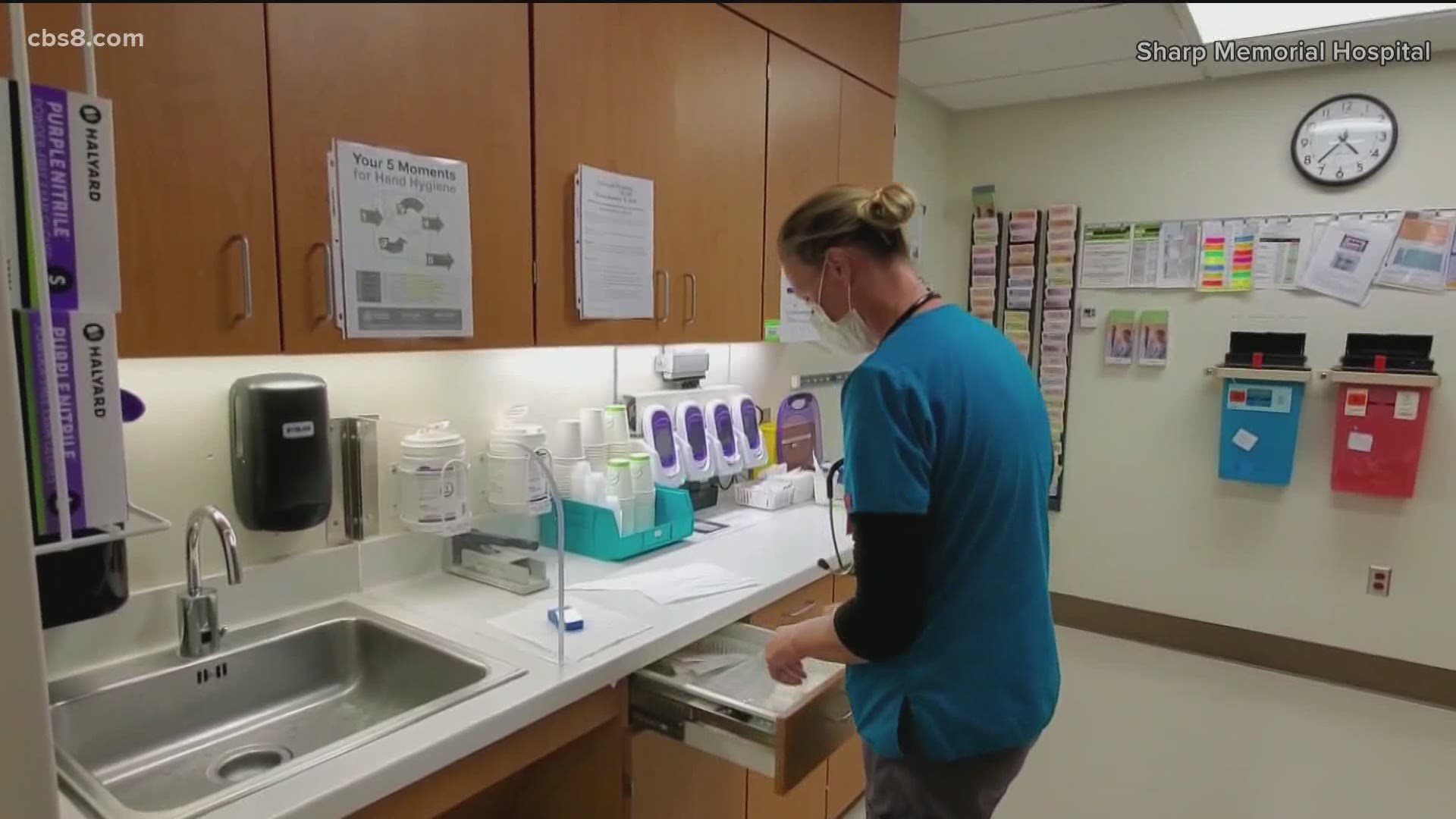SAN DIEGO — As coronavirus cases surge, a San Diego nurse who survived COVID-19 is sharing her story to encourage others to stay vigilant.
Katherine Emmert-Kozo was among the first wave of people in the United States to contract the coronavirus. She took a ski trip to Vail, Colorado with friends the last week of February, and had no idea she had been exposed.
"It happened to me, it can happen to you, and I say that with strong urgency to please remember that you don't know if someone has it," said Emmert-Kozo, who is concerned about the recent spike in coronavirus cases across the country.
A few days after Emmert-Kozo returned to San Diego from her trip to Vail, she began to feel sick. She was working a shift at Sharp Memorial Hospital when her symptoms became so severe, she left work to go to Urgent Care.
"I was coughing, I had body aches, intense body aches," Emmert-Kozo recalled. She said they were strongest aches she'd ever experienced and also had an excruciating headache.
The date was March 5, and she did not meet the criteria set by the Centers for Disease Control to be tested for COVID-19, as she had not traveled to China and had not been in contact with anyone from China.
Emmert-Kozo said she was given a flu test, which came back negative, and was then sent home to get some rest.
At the time, there were less than 200 confirmed coronavirus cases in the U.S. and only 12 known deaths. Still, Emmert-Kozo wondered if she could possibly have COVID-19.
"I remember thinking kind of in the back of my mind, 'What if this is?' and then I thought, 'oh, no way'," she recalled.
She didn't know what she had but did not want her husband or 8-year-old triplets exposed, so she kept a safe social distance from her family. She slept in a room by herself, did not hug or get near her children, and didn't even eat with the family at the kitchen table.
A few days later, Emmert-Kozo said she started to feel better. She had no fever, so she was cleared to return to work. During her second shift back, however, she felt even sicker than before.
"I had a horrible, horrible fever," she said. "I had a lot of nausea, vomiting and extreme fatigue."
Emmert-Kozo said she couldn't catch her breath. "At one point it almost felt like daggers were going in my chest."
Revised CDC guidelines meant this time, she did meet the criteria to be tested for COVID-19. She said her first test was inconclusive and her second test was a false negative. Her third test came back positive on April 1, four weeks after she first started showing symptoms.
Emmert-Kozo said she immediately called her manager at the hospital. She said she never removed her mask when she was at work, and fortunately, none of her coworkers or patients contracted COVID-19.
She was also concerned about the 50 women in the Las Patronas volunteer group, with whom she'd spent eight hours with the day after returning from Colorado, but fortunately, no one in that group had come down with the coronavirus.
Emmert-Kozo and her family later got tested for antibodies, and despite her symptoms lingering for five weeks, she said her husband and three children all tested negative. She said it's shocking that the virus did not spread to anyone else in her family.
She believes her efforts to keep a safe social distance away from there and her diligence in washing hands likely helped contain the virus. Her children continued to ask why she couldn't hug them, kiss them goodnight, or eat with them, but she explained she wanted to keep them safe.
There may be other unknown factors, Emmert-Kozo said, as to why it doesn't appear she was highly contagious, but she said the virus is so new, no one fully understands how it behaves.
She's hoping her story does offer some proof that a little sacrifice can make a big difference.
"Please remember that you don't know if someone has it," she said. "Wear the mask. Watch your hands. Do social distancing."
If you don't think you're at risk, Emmert-Kozo is imploring you to do your part to keep others safe.
"It's a time where we have to think about each other, not just ourselves, and really have patience and be empathetic for all."
Emmert-Kozo is taking part in an antibody study at UC San Diego Health and will be donating plasma to help others recover from COVID-19. She personally knows people who have died from the virus, and said she is humbled to be able to help in the fight against the devastating disease.

